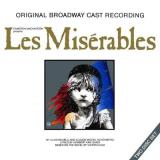Dog Eat Dog lyrics
Dog Eat Dog
(Th?nardier is picking through the corpses in the sewers)
THENARDIER
Here's a hint of gold
Stuck into a tooth
Pardon me M'sieur
You won't be needing it no more.
Shouldn't be too hard to sell.
Add it to the pile
Add it to the stock
Here among the sewer rats
A breath away from Hell
You get accustomed to the smell.
Well someone's got to clean 'em up, my friends
Bodies on the highway
Law and order upside down
Someone's got to collect their odds and ends
As a service to the town!
(Valjean arrives, carrying MARIUS.
VALJEAN collapses)
(THENARDIER robs marius)
Here's a tasty ring
Pretty little thing
Wouldn't want to waste it
That would really be a crime
Thank you sir, I'm in your debt
Here's another toy
Take it off the boy
His heart's no longer going
And he's lived his little time
But his watch is ticking yet!
Well, someone's got to clean them up, my friends
Before the little harvest
Disappears into the mud
Someone's got to collect their odds and ends
When the gutters run with blood.
It's a world where the dog eats the dog
Where they kill for bones in the street
And God in His Heaven
He don't interfere
'Cause he's dead as the stiffs at my feet
I raise my eyes to see the heavens
And only the moon looks down
The harvest moon shines down!
(He turns over Valjean's body, recognizes him, and leaves.
Eventually, Valjean picks up Marius again and walks
through the sewers. As they emerge, they meet Javert)
VALJEAN
It's you, Javert!
I knew you wouldn't wait too long
The faithful servant at his post once more!
This man's done no wrong,
And he needs a doctor's care.
JAVERT
I warned you I would not give in
I won't be swayed
VALJEAN
Another hour yet
And then I'm yours
And all our debts are paid.
JAVERT
The man of mercy comes again
And talks of justice
JAVERT
Come, time is running short
Look down, Javert
He's standing in his grave
Give way, Javert
There is a life to save.
JAVERT(overlapping)
Take him Valjean,
Before I change my mind
I will be waiting
24601.
(Valjean carries Marius off)
Last Update: June, 10th 2013
